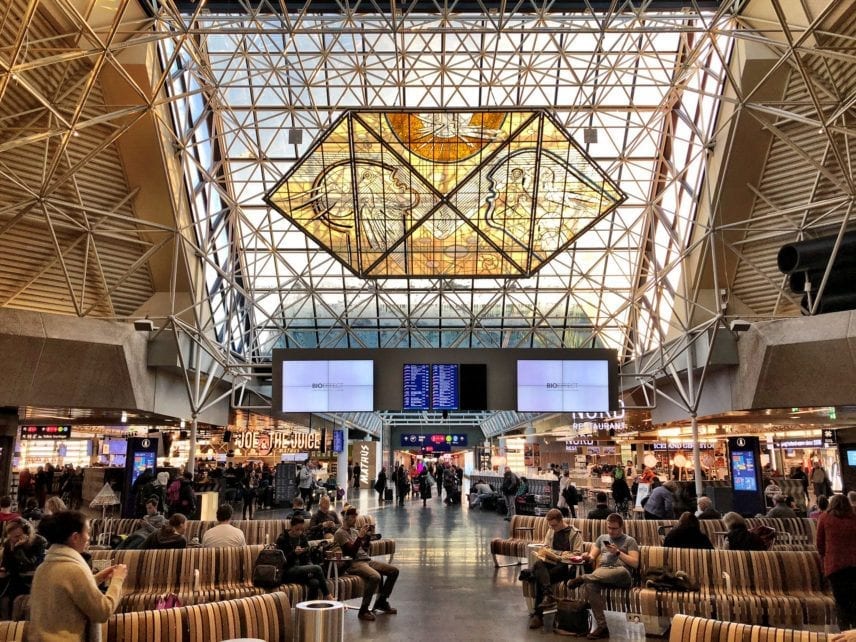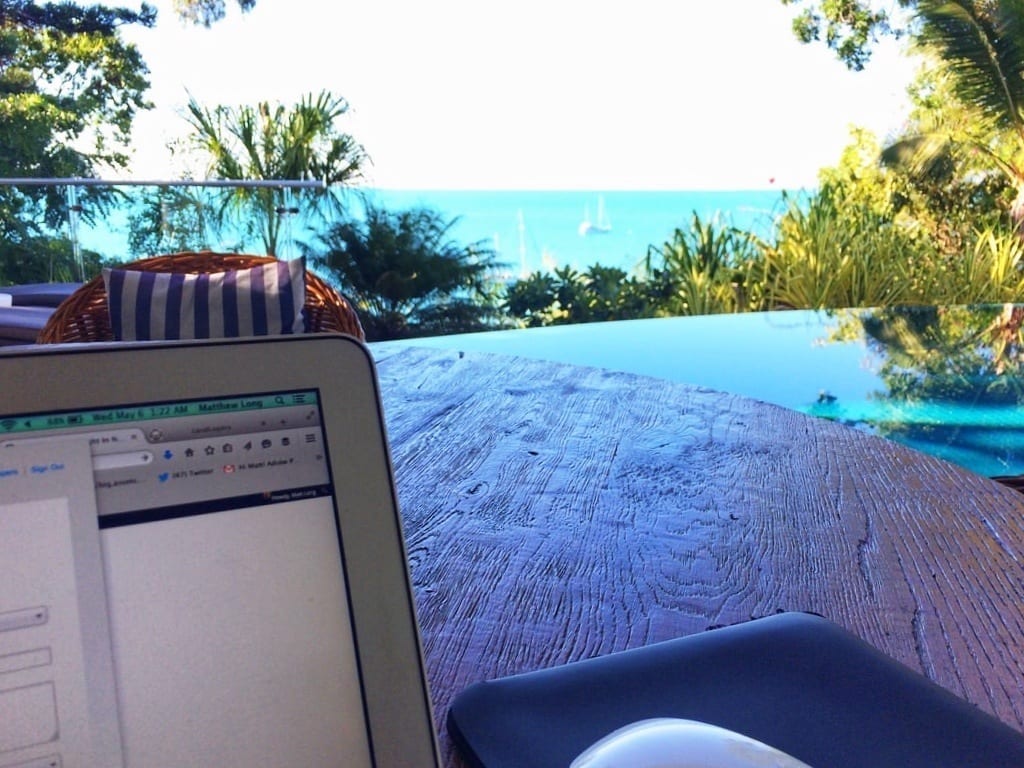
Blogging was the last thing I ever thought I’d be. Diplomat, international businessperson, author, these all seemed likely when I graduated with my MA in International Relations way back in the halcyon days of 1999. I’ve never been tech-centered, I’ve never adopted anything early and when I first started my web site on a rainy Saturday morning more than eight years ago, I had to look up blogger in the dictionary to make sure that’s what I actually was. No, my new career was unlikely in every way, but along that road I’ve seen a lot and learned even more. I’ve tried to experiment with what works and doesn’t work and, more importantly, I’ve watched as others do the same. Let’s be clear, this post is not geared towards travel bloggers. I don’t write for them, I write for normal humans. That being said, I’ve seen some expectations of travel bloggers change, which has hurt the overall quality of the web sites and the community in general. So today I want to share a few aspects of being a travel blogger to help you all better understand what this strange job is all about.

For some of us, this is our career
Starting a travel blog isn’t hard; in fact, it’s pretty easy. That means just about anyone can do it and, in recent years, it seems as though everyone has. But that does not mean they are all professional travel bloggers, there actually aren’t that many of us who can do this full time and earn enough to live in a developed country. It is very much a job, albeit a great one. I usually compare it to being a small business owner, because that is essentially what I am. Self-motivation is essential and one must have a certain entrepreneurial spirit in order to be successful. Nothing is handed to anyone in life, and that’s especially true in the digital environment. This professionalism means a couple of different things. First of all, it means that a successful blogger will very much treat their site and overall online presence as a company. Business plans, growth projections, ideas for new products and so on are all key to being successful in this very strange career. But that also means others should treat us as professionals. Every day I receive a seemingly endless stream of emails all asking me to work for free. It comes in many different forms, from readers who want me to plan out their vacations step by step to public relations professionals who want me to showcase whatever they’re selling that day. Professional bloggers cannot afford to work for free, and writing, photography, videography, that’s all work. I wouldn’t ask my dentist or a plumber to work for free, so why should others expect the same from me?

Not backpackers on a permanent vacation
One thing that surprises most people, is that the most successful travel bloggers are in large part over 30 with a great percentage over 40, come from high level professional careers and even maintain a home and normal family life. I think the misconception is that travel bloggers are barefoot 23-year old backpackers on a gap year around the world. Sure, those folks may blog for a year or two, but for those of us doing this for 8+ years, that is nothing even close to our lifestyle. Digital nomads and location independence are terms that at first blush can be confusing, especially identifying as a digital nomad. In my personal opinion, both terms are essentially interchangeable and mean that someone has a job which enables them to work anywhere in the world. As a mid-range Gen-Xer, growing up in the 80s and graduating college in the 90s, the concept still seems fantastical to me and yet it’s becoming increasingly common. Thanks to the great and mighty Computer and Internet, millions of folks like myself can work from anywhere. As great a luxury and innovation in the history of work since the wheel. (That may be an exaggeration) You can be an accountant and be a digital nomad, or a travel blogger. Calling oneself a digital nomad though doesn’t necessarily mean you’re nomadic. I’m location independent and yet I have a house in the burbs, dogs, cars and a pretty common suburban lifestyle. When looking at the top travel bloggers in the world, this kind of stability is actually the norm, although there are outliers. Traveling in perpetuity isn’t fun, it’s taxing and (I think) a little depressing. Instead many of us do in fact have homes, but travel quite often.

What goes into a new post
I read something by a colleague that made me at first laugh, then think. It listed the 70+ steps that go into creating each and every blog post. Since I have several thousands on LandLopers, I shudder to think how much time I’ve devoted to this passion. But it IS my passion and really, is something I love more than anything, and the work doesn’t feel as laborious as other jobs I’ve had. But work it is, and everything from traveling, to planning an itinerary not for vacation but to maximize writing and photos to actual writing and editing, the list goes on and on. Each and every post on this site is a labor of love, one that took more time than I care to think about. New posts are not flippant affairs, they are meaningful, well-conceived pieces that share experiences and advice we feel is important.

We are not guidebooks
Independent travel blogs are not guidebooks or magazines, they are personal interpretations of how an individual (or individuals for multi-author blogs) travels and perceives the world. Personal is the key word here. They should be all about the individual writing them, they should be biased and they should not be comprehensive guides to any given place. That’s how and why blogs became popular in the first place, and yet so many bloggers seem to have forgotten that basic tenet in recent years. How I normally explain it to people is like this. Think about the popular guidebook author Rick Steves. Why did he become so popular as a travel personality? We frankly didn’t need any more European travel guides; Frommer’s, Fodor’s, Lonely Planet and others had already done that quite well. No, Rick became popular because of his personality and the way in which he traveled. It was different, it was unique and people could identify with it. Instead of listing key sites, Rick showed people how he prefers to travel Europe and as it turns out, a lot of people related to his style. We didn’t need Rick for his listing of famous sites and tasty restaurants, we needed Rick for Rick. A good travel blog seeks to accomplish the same mission, just in a digitalized fashion. A good travel blog should not be a travel guide. If you see a post listing everything to see and do in Paris, don’t read it. What’s the point? Now, if that same author wrote about the 10 things they personally love to see and do in Paris, then that would have some value. It would reflect their personality and would be interesting. That, ladies and gentlemen, is the value of a good travel blog.

We should share our experiences, but not be egotistical
There is a fine line one must negotiate as a blogger between providing information that is personalized and content that is simply egotistical. I’ve seen a recent, and sad, phenomenon of young men and women who seem to be all about fluff instead of substance. They purport to have a blog, they write (albeit poorly) but really it’s a platform in which to showcase themselves half naked in hotel pools. I’m not sure how or why this weird trend of models turned travel writers occurred, but it’s not good for the overall profession. They cheapen it and they take away from what’s important all in the vain attempt to increase their own notoriety and probably score some free trips in the process. No, a good travel blog should be about the individual writing it, but it’s also the responsibility of that writer to address the needs and concerns of his or her audience. It’s tough, no doubt there, which is why the most successful travel bloggers are also fiercely intelligent and driven people. Most of the successful travel bloggers are in their second or third careers in life and of the ones I know they come from industries as impressive as medicine, law, banking, politics and more. These aren’t the stereotypical young 20-somethings on a gap year; they are smart professionals who simply have an unconventional job. That’s also why they’ve succeeded, because they have the mental acuity to walk that tightrope and deliver content that is honest and engaging, without being braggadocious or self-aggrandizing. Keep that in mind when looking at travel blogs, are they using you or are they serving you?

Not everyone is an influencer and many blogs are terrible
Whenever someone new on any platform follows me, I like to read their bios. Nearly every blogger now lists among their many talents the term “influencer.” And every time I read that my rolling eyes can be heard across the street. If you have 1,000 followers and have been around for a month then no, you are not an influencer. Sorry. In fact, influencers would never put the word influencer in a bio. If you truly are influential, it should just be obvious. The same goes with the words, “ninja, expert, guru, etc.” Terms that are absolute rubbish. In 1964, US Supreme Court Justice Potter Stewart coined a phrase in relation to a case involving pornography that is now one of the most famous phrases ever issued by the Court. In his threshold test for obscenity he wrote that he knows it when he sees it, and the same certainly holds true for a good travel blog. It’s not something that can be quantitatively defined or analyzed, but a good travel blog is just something you know almost right away. It starts with the design of the site itself and parlays into the photography and written word contained within. The internet has an uncanny ability to detect BS, and within seconds you should be able to know whether or not you’ve surreptitiously landed on a good travel blog or not. You’ll know immediately if the writer is there with a clear goal in mind and that goal is ultimately providing a service not to themselves, but to the greater world. It takes a certain personality to put yourself out there, to place your very identity on display for everyone to critique and judge. Those of us who do this professionally don’t do so for the perks, although they’re certainly nice. No, we do it because we have no other choice. This is our passion and our calling and to NOT write these posts, to not own a travel blog would mean depriving our very souls of the oxygen needed to survive. That, my friends, is how you know a truly great travel blog. Whether or not they have that passion for travel, whether or not it’s their true calling and whether or not they could imagine no other way of life.
